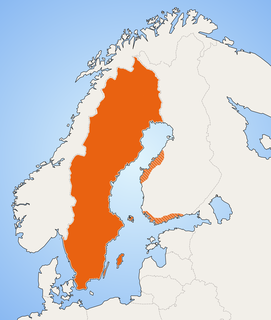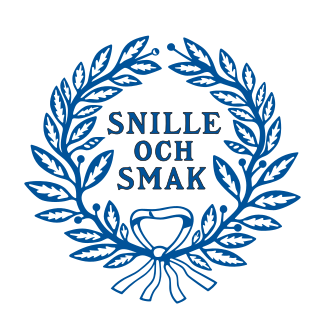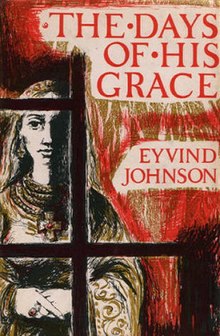
The Nobel Prize is a set of annual international awards bestowed in several categories by Swedish and Norwegian institutions in recognition of academic, cultural, or scientific advances.

Jan Kjærstad is a Norwegian author. Kjærstad is a theology graduate from MF Norwegian School of Theology and the University of Oslo. He has written a string of novels, short stories and essays and was editor of the literary magazine Vinduet. He has received a number of prizes, the most important being the Nordic Council Literature Prize, which he received for the perspectivist trilogy about the TV personality Jonas Wergeland.

Harry Martinson was a Swedish author, poet and former sailor. In 1949 he was elected into the Swedish Academy. He was awarded a joint Nobel Prize in Literature in 1974 together with fellow Swede Eyvind Johnson "for writings that catch the dewdrop and reflect the cosmos". The choice was controversial, as both Martinson and Johnson were members of the academy and had partaken in endorsing themselves as laureates.

Per Olov Enquist, better known as P. O. Enquist, is a Swedish author. He has worked as a journalist, playwright, and novelist. In the 1990s, he gained international recognition with his novel The Visit of the Royal Physician.

Jon Olav Fosse is a Norwegian author and dramatist.
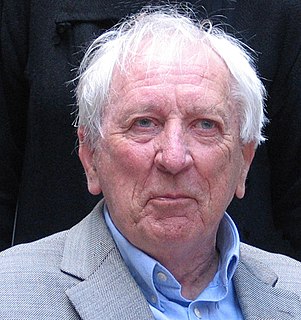
Tomas Gösta Tranströmer was a Swedish poet, psychologist and translator. His poems captured the long Swedish winters, the rhythm of the seasons and the palpable, atmospheric beauty of nature. Tranströmer's work is also characterized by a sense of mystery and wonder underlying the routine of everyday life, a quality which often gives his poems a religious dimension. He has been described as a Christian poet.
Swedish literature refers to literature written in the Swedish language or by writers from Sweden.

Thor Vilhjálmsson was an Icelandic writer. He was born in Edinburgh, Scotland. Over the course of his life Vilhjálmsson wrote novels, plays and poetry and also did translations. In 1988 he won the Nordic Council Literature Prize for his novel Justice Undone. In 1992, he won the Swedish Academy Nordic Prize, known as the 'little Nobel'.

The Saxon Wars, also called the Saxon War or Saxon Uprising, were the campaigns and insurrections of the thirty-three years from 772, when Charlemagne first entered Saxony with the intent to conquer, to 804, when the last rebellion of disaffected tribesmen was crushed. In all, eighteen campaigns were fought, primarily in what is now northern Germany. They resulted in the incorporation of Saxony into the Frankish realm and their forcible conversion from Germanic paganism to Catholicism.
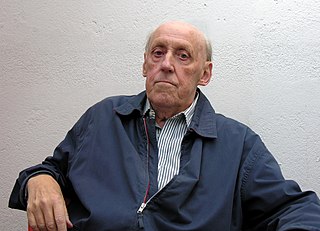
Baron Bo Gustaf Bertelsson Carpelan was a Finnish poet and author. He published his first book of poems in 1946, and received his Ph.D. in 1960. Carpelan, who wrote in Swedish, composed numerous books of verse, as well as several novels and short stories.
Karl-Erik Forsberg (1914–1995), Swedish calligrapher, typographer, graphic designer, type designer and artist. His brother Vidar Forsberg was also a designer. His wife was Geith Forsberg.
Scandinavian literature or Nordic literature is the literature in the languages of the Nordic countries of Northern Europe. The Nordic countries include Denmark, Finland, Iceland, Norway, Sweden, and Scandinavia's associated autonomous territories. The majority of these nations and regions use North Germanic languages. Although majority of Finns speak Uralic languages, Finnish history and literature are clearly interrelated with those of both Sweden and Norway who have shared control of various areas and who have substantial Sami populations/influences.

Kjell Westö is a Finnish author and journalist. Westö writes in Swedish. He is best known for his epic novels set in Helsinki, but he has also written short stories, poetry, essays and newspaper columns.
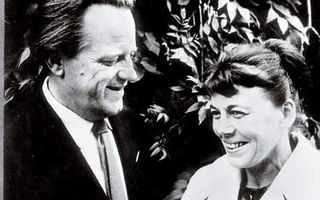
Lars Ahlin was an award-winning Swedish author and aesthetician.

Pia Tafdrup is a Danish writer; primarily a poet, she has also written a novel and two plays, as well as works for radio.

The Nobel Prize in Literature is a Swedish literature prize that is awarded annually, since 1901, to an author from any country who has, in the words of the will of Swedish industrialist Alfred Nobel, produced "in the field of literature the most outstanding work in an ideal direction". Though individual works are sometimes cited as being particularly noteworthy, the award is based on an author's body of work as a whole. The Swedish Academy decides who, if anyone, will receive the prize. The academy announces the name of the laureate in early October. It is one of the five Nobel Prizes established by the will of Alfred Nobel in 1895. It was not awarded in 2018, but two names will be awarded in 2019.

Selma Ottilia Lovisa Lagerlöf was a Swedish author and teacher. She published her first novel, Gösta Berling's Saga, at the age of 33. She was the first female writer to win the Nobel Prize in Literature, which she was awarded in 1909. Additionally, she was the first female to be granted a membership in The Swedish Academy in 1914.

The Nobel Prize in Chemistry is awarded annually by the Royal Swedish Academy of Sciences to scientists in the various fields of chemistry. It is one of the five Nobel Prizes established by the will of Alfred Nobel in 1895, awarded for outstanding contributions in chemistry, physics, literature, peace, and physiology or medicine. This award is administered by the Nobel Foundation, and awarded by Royal Swedish Academy of Sciences on proposal of the Nobel Committee for Chemistry which consists of five members elected by Academy. The award is presented in Stockholm at an annual ceremony on December 10, the anniversary of Nobel's death.

Jean-Claude Arnault, known in Swedish media as "the cultural profile", is a French-Swedish convicted rapist and photographer who became widely known after several accusations of sexual assault levelled against him precipitated a scandal resulting in the resignations of members of the Nobel Committee and the postponement of the 2018 Nobel Prize for Literature. These events occurred against the background of the Me Too movement. In 2018, he was convicted of rape and sentenced to two years and six months in prison. He was formerly artistic director of the cultural center Forum – Nutidsplats för kultur at Sigtunagatan 14 in Stockholm.
